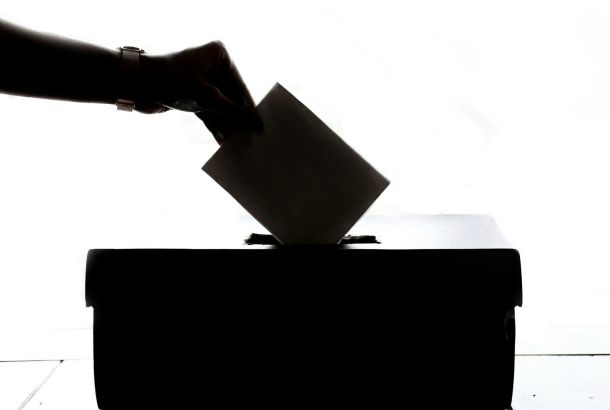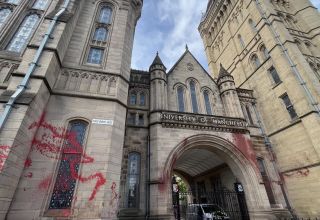“The last kick in the teeth”: The class of 2023’s chaotic graduation

Some of the interviewees in this article have been anonymised with fake names.
“My parents are asking me when I’m going to get my grade back…I literally have no clue.” Adam, a History graduate, had been waiting five months for his dissertation to be marked.
Before the end of the UCU’s marking and assessment boycott (MAB), 253 University of Manchester graduates were without classified degrees, The Mancunion has found.
This was made up of 176 students in Humanities and 77 in Science and Engineering. In total, 11,286 final-year students were eligible to graduate at the end of last academic year.
One-off payments
Those students who were waiting for their classification after their graduation date were offered a £500 payment as compensation, along with a letter to their future employer. Whilst students who received their grades late but ahead of graduation were offered £150.
The University has responded to The Mancunion stating it does not hold the the total figure of cumulative cash payouts offered to students, as the payments are still being processed.
This response was given past the working time frame to a Freedom of Information request. Over the course of this investigation, the Information Governance Office has repeatedly delayed responses to The Mancunion’s requests.
Academic standards
An anonymous UCU source told The Mancunion that “scripts and coursework for graduating students may have been marked by staff other than those who delivered the unit.”
This source informed us that “where it was possible the University sought to graduate with minimum requirements where marks were missing due to the MAB.” Expressing their concerns, “the University clearly put graduating students above maintaining academic standards.”
For some students we spoke to this was the case. Agata, a French and Italian graduate, had her Italian language module marks added as a predicted grade. If the actual marks were higher than the predicted, it would be changed. She told us “there’s no room for investigation for [employers] to say these are only predicted grades.”
Protest, letters, and frustration
From spending a year in halls during a COVID lockdown to the uncertainty of whether their dissertations were read by their supervisor, this set of graduates has faced a highly unusual and disrupted university experience. Whilst some students expressed their discontent through social media at this final hurdle, others made a visible protest during graduation ceremonies. The wearing of UCU sashes was common across the country.
The Mancunion was informed that one student threw fake money when he walked across the stage to collect his certificate, shouting to the crowd “Pay your staff!”.
The graduation ceremonies came after weeks of nationwide strikes by the UCU, the union which represents staff in further education bodies. As a result of industrial action, many graduating students walked across the stage without a classified degree.
As a replacement for a certificate, students without classified degrees were given a letter, designed to be shared “with prospective employers or institutions where they may be seeking to undertake further study or research.”
Adam, who received one of these letters, said at graduation it was “a bit of a joke.” Alice, a History and Politics graduate, agreed, calling it “anticlimactic.”
Others, who graduated with a classified degree, still felt graduation was a sticking point. Physics graduate Olivia, told us she “wasn’t trying to dampen [her] day” by thinking about the disruption she had encountered, feeling she “had to be happy regardless.” Nonetheless, she also felt “frustrated that there’s not much [she] could do” about the disruption she had faced.

Many graduates lacked a full set of classified marks when graduating. Alanah, a Sociology graduate, felt angry about the prospect of her dissertation not being marked. She said that it was “a major point of disappointment.” Reflecting on her university experience in its entirety, she described the absence of a marked dissertation “like [the] cherry on top…here’s the last kick in the teeth.” She received her full marks in October, 2 months after the summer graduation series.
She also highlighted that many students were “left in the dark” about the status of their degree classifications and whether ceremonies would go ahead. An email with the subject line “Last chance to hire your cap and gown” also included information about how strikes would potentially affect graduations. However, this information was at the end of the email, and in her view implied that the university was trying to be “hush, hush” about the situation.
Alanah said that many of her coursemates instead had to “talk about it with each other on WhatsApp group chats, constantly messaging ‘What’s going on?’.” She made the decision to defer her graduation until December, because of the disruption caused by the MAB and her desire to attend graduation with her full grade.
Similarly, Serena, who will also graduate in December with a degree in Politics and International Relations, had to mute a course group chat which at its peak had 150 messages within one hour, with her coursemates confused about the status of ceremonies and marks. Information about her late graduation via email was sent in between emails about the University’s cyber-attack which took place in late June.
Student perspectives on the strikes
Theo, a German and Spanish graduate, told us that he believed the lack of communication from the University showed management did not want to admit students were graduating without grades. For him, it “showed the strike was working and they wanted to pretend it wasn’t…they didn’t want to admit that it was working.”
The marking and assessment boycott began on 20th April 2023, ending on 6th September 2023. Those participating in the boycott would not mark, or return marks, for any assessment until the dispute and their demands for better working conditions were met. Many of the students we spoke to felt they understood why teaching staff were striking. Their disappointment was instead directed at University management, rather than lecturers themselves.
In May, the Faculty of Humanities sent an email confirming that “it is possible that graduation for a small number of students may unfortunately be delayed.”
At the start of July, in a statement from Professor April McMahon, Vice-President for Teaching, Learning and Students, the university revealed that of the more 11,400 graduating students, less than 3% had been identified as having insufficient marks for an exam board to consider an award.
The statement said that: “Any student who experiences a delay in receiving their degree award beyond the date of their graduation ceremony will be paid £500. If the delay is resolved before ceremonies begin on 11 July, students will receive a payment of £150.”
Tess, a graduate of History, told The Mancunion that offering payment was “an abuse of power.” She believed that it excused the University from “answering any questions and committing to a date when we’ll actually receive our marks.”
Likewise, Max, who graduated with a degree in Modern History and Politics, said that he could “only imagine academics are wondering why students are being paid when money supposedly isn’t there for them.” However, he also acknowledged that “the financial package being offered to students [was] welcome.”
Max blamed the lack of a classified degree on the failure of the University to negotiate with the UCU. Before graduation, he told us “their working environment is highly significant in determining our learning environment and thus it is imperative for them to negotiate; they can’t just hope it goes away.”
Other students we spoke to expressed similar issues with the financial compensation the University offered. Nick, a Physics with Astrophysics Integrated Masters graduate, told us that “it’s a bit ridiculous” that the University felt the need to give students financial compensation. Theo echoed his concerns, calling the money “just another scandal.”
Olivia believed the payouts were a method of damage control. “I think they’ve anticipated to a point that we would be angry about this.” She told us that “if you’re anticipating backlash, then you’re probably doing something wrong.”
Agata, who did a degree in French and Italian, argued that the University was “silencing us with that money.” She acknowledged that “at the end of the day, had they not given us money, we would have been as unhappy about having our grades released late.”
Further study
The disruption this set of graduates has faced has also affected their experience continuing to further study and employment. Prior to his graduation, Max told us that such conditions were “severely dissuading [him] from continued higher education study.” He has now gone on to pursue a Masters at Salford University.
Alice, who is also starting a Master’s, will continue studying at UoM. Due to the disruption caused by the MAB and predicted grades, she went up a degree classification. Awaiting ratification by the exam board, she will have to wait to apply for reduced tuition fees. This may have been possible had the typical timeline occurred in 2023.
Her decision to study a Master’s was thanks to her academic experience at Manchester. “Even with disruption, I’ve really enjoyed my course. I think the [teaching] at the uni is really good, especially on history modules. I think the course content was very well taught at the uni.”
On the other hand, Nick told us his desire to do a PhD “dropped significantly.” For him, “PhD students are paid terribly considering the amount of expertise they have.”
Olivia, who has a job in the pipeline, would not have been affected by the lack of a classified degree. In her case, her employer “just wanted confirmation that [she’d] been to university.”
This was a similar case for Adam, who, like Max, is also going to Salford for a Masters. The University only required marks from first and second year whilst he was waiting on a classified degree. However, he told us that there “was a period of waiting in summer when [he] was getting a bit worried that maybe they wouldn’t accept anything apart from the actual degree itself.”
Are the grades back?
On 25th September, the University’s branch of the UCU and the University, called off strikes over further deductions as a result of the MAB. 25% pay deductions currently remain, with the vote to end strikes passing only very narrowly. Manchester UCU members twice rejected a deal which does not cap deductions.
The University has now agreed that those who participated in the MAB “should complete outstanding marking and assessment as soon as practical, and where reasonably possible by Friday 13 October 2023.”
Whilst most marks have been returned to graduating students, some are still without. In an email to an affected student, the SALC Wellbeing team responded: “[the] assessments team are hoping to update any MAB affected courses in the next few weeks, in line with the November exam board.”
Despite the marking and assessment boycott, graduations remained well-attended. From data obtained via an FOI, 24,500 people attended the 2023 summer graduation series, with 20,000 attendees for summer 2022. It is important to note that this is only an estimate, as the University does not carry out a headcount at each ceremony.
The UCU is currently re-balloting to gain another mandate for further industrial action.
A University spokesperson said:
“Regrettably, as in universities nationwide, some of our students have been impacted by the marking and assessment boycott. However, we ensured all eligible final-year students could attend their graduation ceremonies, although some did so without receiving their final awards. Less than 3% of our students have experienced delays in their degree classifications, out of a total of over 11,400.
“Most of our students have now received their marks and awards, with outstanding cases being addressed actively. We are dedicated to completing the process of securing final classifications and marks, and minimising any associated disruptions. Our commitment to student well-being continues to be a priority, with the availability of support through our dedicated Careers Service and extended mental health and well-being resources.
“We took steps to ensure that we maintained academic quality and standards and to protect and safeguard the rights and interests of our students. We maintain high confidence in our assessment procedures and the quality of our awards, an endorsement reiterated by our Faculty and University External Examiners.
“Our approach to graduation ensured all eligible students could participate and our proactive response recognised the distress and inconvenience experienced by offering students payments.”
The local branch of the UCU has also been contacted for comment.







